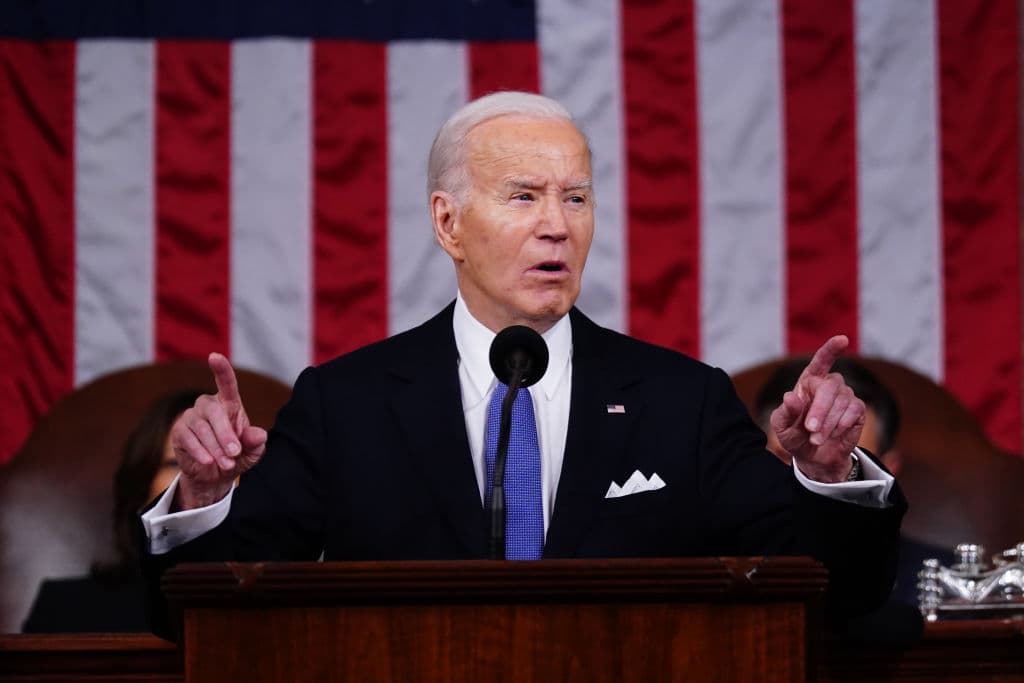Biden Proposes $7.2 Trillion Budget Next Year, Upping Annual Deficit to $1.8 Trillion
The president is proposing, yet again, a tax on unrealized capital gains for households with a net worth of $100 million or more, an idea that has been shot down in the past.

President Biden has submitted his fiscal year 2025 budget proposal to Congress: a massive $7.2 trillion package with more money for green energy and housing development, price caps on prescription drugs, free preschool for all, and a host of other social spending. The president wants to pay for it all by increasing taxes on corporations and high-income individuals and couples.
Please check your email.
A verification code has been sent to
Didn't get a code? Click to resend.
To continue reading, please select:
Enter your email to read for FREE
Get 1 FREE article
Join the Sun for a PENNY A DAY
$0.01/day for 60 days
Cancel anytime
100% ad free experience
Unlimited article and commenting access
Full annual dues ($120) billed after 60 days

